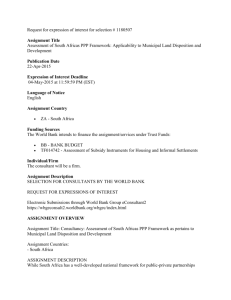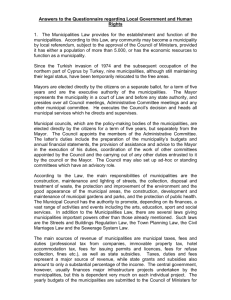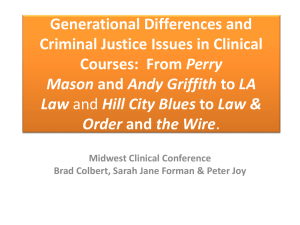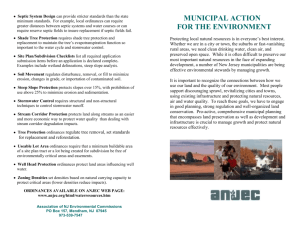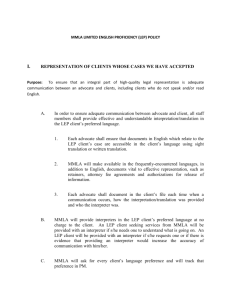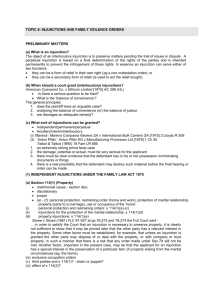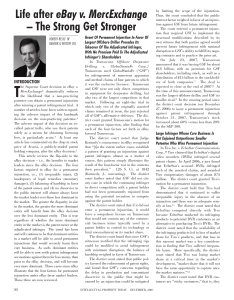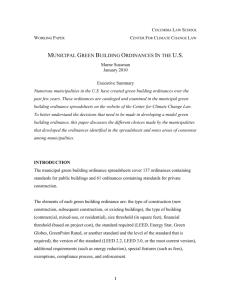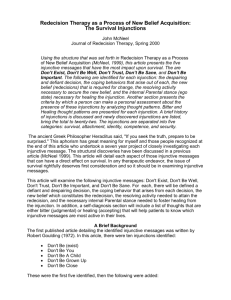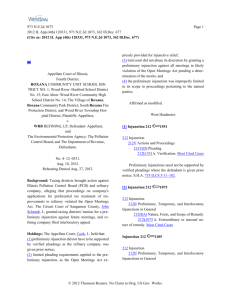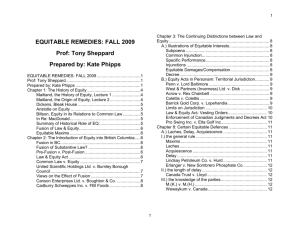Testimony-in-support-of-S-944-draft-8.1.13
advertisement
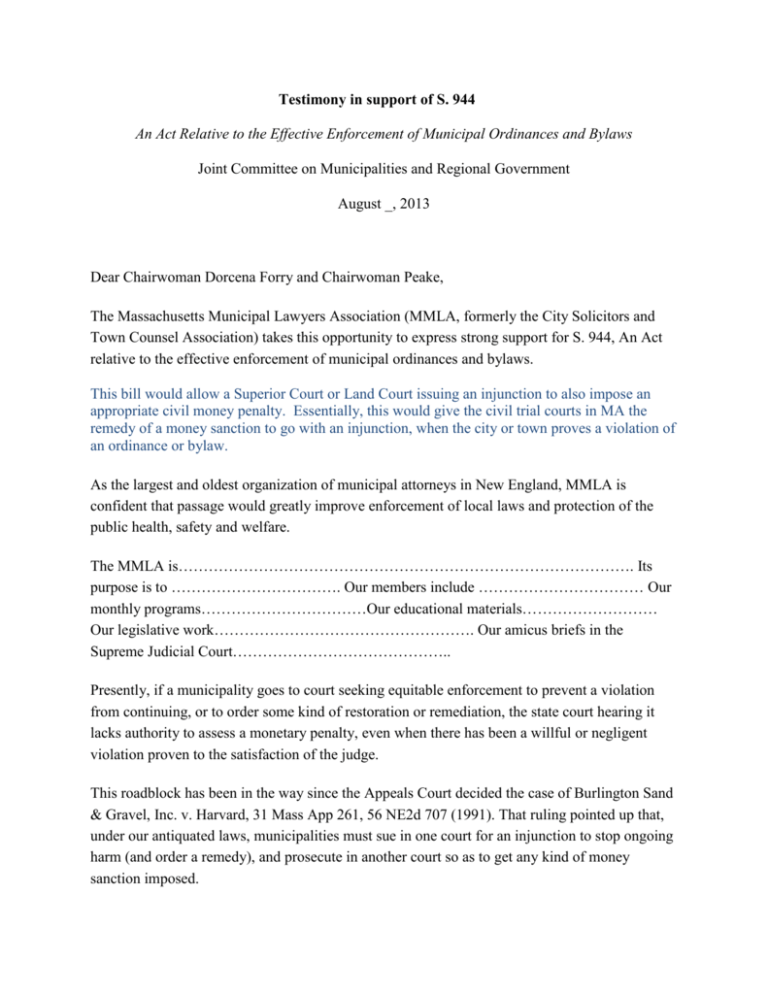
Testimony in support of S. 944 An Act Relative to the Effective Enforcement of Municipal Ordinances and Bylaws Joint Committee on Municipalities and Regional Government August _, 2013 Dear Chairwoman Dorcena Forry and Chairwoman Peake, The Massachusetts Municipal Lawyers Association (MMLA, formerly the City Solicitors and Town Counsel Association) takes this opportunity to express strong support for S. 944, An Act relative to the effective enforcement of municipal ordinances and bylaws. This bill would allow a Superior Court or Land Court issuing an injunction to also impose an appropriate civil money penalty. Essentially, this would give the civil trial courts in MA the remedy of a money sanction to go with an injunction, when the city or town proves a violation of an ordinance or bylaw. As the largest and oldest organization of municipal attorneys in New England, MMLA is confident that passage would greatly improve enforcement of local laws and protection of the public health, safety and welfare. The MMLA is………………………………………………………………………………. Its purpose is to ……………………………. Our members include …………………………… Our monthly programs……………………………Our educational materials……………………… Our legislative work……………………………………………. Our amicus briefs in the Supreme Judicial Court…………………………………….. Presently, if a municipality goes to court seeking equitable enforcement to prevent a violation from continuing, or to order some kind of restoration or remediation, the state court hearing it lacks authority to assess a monetary penalty, even when there has been a willful or negligent violation proven to the satisfaction of the judge. This roadblock has been in the way since the Appeals Court decided the case of Burlington Sand & Gravel, Inc. v. Harvard, 31 Mass App 261, 56 NE2d 707 (1991). That ruling pointed up that, under our antiquated laws, municipalities must sue in one court for an injunction to stop ongoing harm (and order a remedy), and prosecute in another court so as to get any kind of money sanction imposed. This hinders municipalities to deter or punish serious violators over the whole range of local bylaws and ordinances. Here are several examples of the subjects they deal with: zoning, health, buildings, construction activities, streets and roads, noise, fire and explosion risks, underground and above ground tanks, : …………………………………………. Cities and towns are between this rock and hard place, but the state is not. State statutes, especially the environmental laws, typically authorize both court-ordered injunctions and penalties, in suits where the state is able to prove the case. It makes common sense that MA courts should have the same tools in successful suits by municipalities. Forcing towns to bring criminal prosecutions, for even the smallest penalties, is particularly burdensome on all concerned. It involves the local police department, taking the time of the chief and assigned officer, and maybe the District Attorney’s office, taking the time of an assistant D.A. and investigator. They need to seek a criminal complaint, indict the violator, and then succeed at trial or negotiate a “plea bargain” to get a criminal fine. The violator, no matter the size or seriousness, is left with a criminal record. Even if the municipality has adopted the so-called 21D non-criminal disposition procedure, using G.L. c.40, s. 21D (issuing citations with modest money penalties), the city or town must file a criminal complaint in District Court to get them paid if the violator refuses. All this cost and time to impose a modest money penalty which rightly ought to be imposed hand-and-glove with an injunction. The point of S.944 is to consolidate in one type of court case the available remedies most needed and effective; avoid the need to bring a separate criminal prosecution to seek a money sanction; and avoid the consequence of giving the violator a criminal record. MMLA urges a favorable report from your Committee. Very truly yours, (title)






